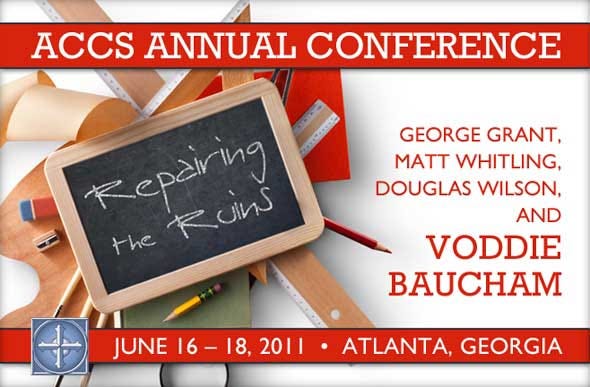A Primer on Conferencing
I'm here in Atlanta with 944 other folks for the 17th annual Association of Classical and Christian Schools conference. It's quite a gathering, with some neat folks from all over the country in attendance, and I'm grateful for the chance to join them.
The schedule is pretty straightforward: morning plenary, two morning workshops, afternoon plenary, two afternoon workshops. Evenings are free to process or collapse, depending on your temperament. The stage is sparse and the visuals non-existent (two critiques I have of a conference with a workshop titled "The Imperative of Beauty and the Aesthetic Call"), but the facility is terrific, the content is great, and there's always plenty of people to watch and wonder about (like the guy who is the spitting image of Richard Dreyfuss as a young Glenn Holland in the film, Mr. Holland's Opus - weird).
Because I used to periodically attend conferences when I was with The Navigators (not to mention design and run them at Glen Eyrie), I've developed my own set of conference-going habits for taking part in these kinds of gatherings. Granted, this event is more professional than personal, but some guidelines still apply. For instance:
With regard to speaker notes, I don't bother filling in blanks or capturing every point speakers make; instead, I listen for quotables that strike me and capture them on paper or online, as those are what I'm more apt to remember and want to revisit.
Because conference-attending is a huge commitment not only of money but of time, I give myself permission to work on other tasks while listening. This doesn't work for everybody, but I'm primarily an auditory learner, so the plenary pedagogy works well enough for me (plus, I get some things done, and there's a lot of those things to do now that I'm one week into the role).
I also give myself permission to skip sessions I'm not interested in, switch workshops from ones that aren't well-prepared to others that are, and take needed naps to stay fresh because, let's face it, most conferences are over-programmed with little time built in to process and play with ideas otherwise.
I always try to identify 3-4 people - presenters, fellow conferees, people who just look interesting, etc. - with whom I can schedule individual meals and breaks before, during, and after sessions. While there are a couple of moderated group lunch discussions I plan to attend with an ear to content, I don't find those nearly as engaging as sitting down with someone eyeball-to-eyeball to ask questions, to listen, and to try to learn something specific.
Rarely do I stop and visit the vendor booths unless 1) there's something very, very specific I'm interested in, and 2) the vendors aren't there (this is the best time to pick up free promotional material without having to endure the spiels). Yes, I know this seems both non-curious and cruel, but they're getting their material into my hands; I'm just controlling the delivery system.
Finally, I pray for Megan and the girls and keep in touch so they know that just because I'm away doesn't mean they're forgotten. I know from experience how hard it can be on a spouse holding down the fort while the other is traveling, enjoying some schedule autonomy, and experiencing new intellectual stimulation. This is probably why Megan and I talked tonight about her attending the ACCS conference in Dallas with me next June.
To quote presenter Douglas Wilson: "Books are the original distance-learning packets, but the Bible assumes true education within a godly community of others."
It's good to be here talking about Christian ideas from the classic books, and doing so in the context of others. Perhaps the greatest benefit of a classical Christian education can be summed up in this realization: I have much to learn.




